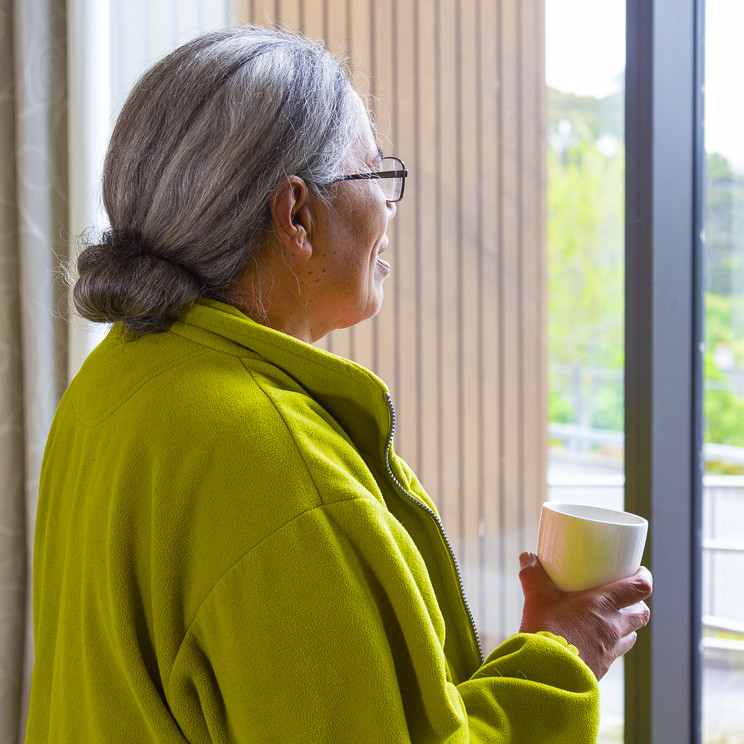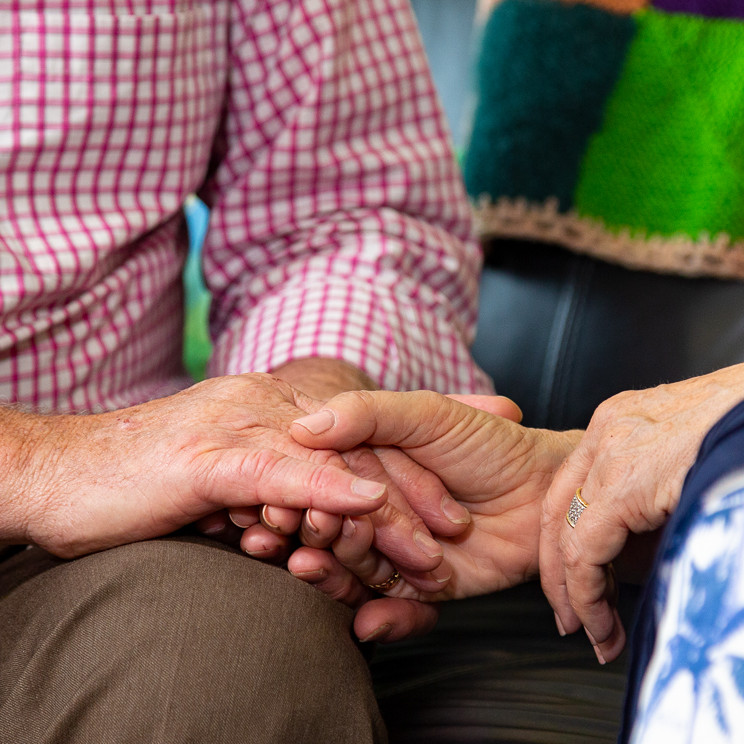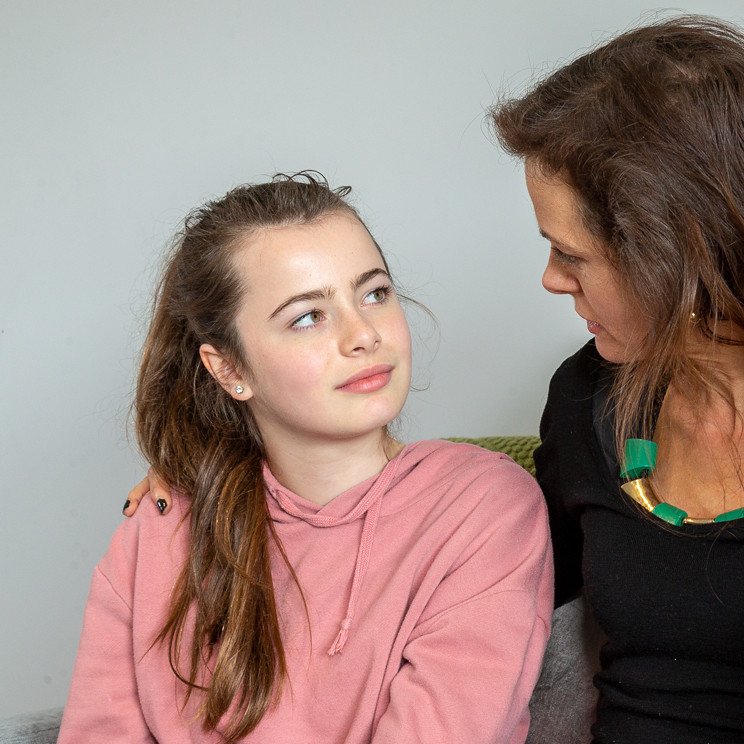A cancer diagnosis and treatment impacts you physically, emotionally and financially. You may have to stop working during treatment or reduce your hours. Your partner may have to take time off to look after you during treatment.
You may be able to get a benefit to help you get through. You may feel hesitant or uncomfortable asking for a benefit but our social welfare system is designed to support you through difficult times.
Work and Income
Talk to Work and Income as early as possible so they can let you know if you are eligible for support and help you.
Call Work and Income 0800 559 009
If you are not eligible for a benefit, there may be ways Work and Income can still help you financially.
The Work and Income website has clear information on what support is available if your health impacts your ability to work and if you need someone to care for you:

A Guide for Carers - He Aratohu mā ngā Kaitiaki
Your partner may also need time off to take you to treatment and look after you.
The Ministry of Social Development has produced a guide for whānau, aiga and carers who assist family members and friends who need help with everyday living because of a health condition, disability or injury.
It includes information on services and supports available for carers, such as:
- Financial help
- Transport and travel
- Assessing needs
- Help at home
- Children with special education needs
- Balancing your caring role with work and study
- Taking care of yourself
- Contacts in time of mental health crisis
- Help with managing bladder or bowel control
- Making and resolving complaints

Are you eligible for Work and Income assistance?
When Work and Income make decisions they look at your circumstances including:
- Do you have a partner? Their situation and income will be taken into account. Do they need to take time off work to look after you? See the Guide for Carers information.
- Your age: The main Work and Income benefits are available for people under 65.
- Residency criteria: You must be a permanent resident or New Zealand citizen and normally live here when you apply. If you don’t meet this criteria talk to Work and Income to find out if you qualify for any other type of help.
- Income testing: Many benefits are income tested. Income can include any money you or your partner get from work, investments, your own business, rent or boarders, insurance (eg income replacement or mortgage protection), or Accident Compensation Corporation (ACC) payments.
- Looking or preparing for work: Most people receiving Jobseeker Support due to a health condition or disability are expected to look for part-time work or prepare for work. If your ability to work is affected by your cancer, you may not need to look or prepare, for work. You will need to provide a medical certificate or other information from your doctor. You do not need to look or prepare for work if you have a job to return to.
Types of benefits you may be eligible for
There are a significant number of benefits you may be eligible to receive. If you do need support a call or visit to Work and Income may be the best way forward.
Call Work and Income 0800 559 009
Remember to ask for a health certificate from your doctor or treatment team. You are likely to have to provide this to Work and Income.
Change around Work Capacity Medical Certificates
The process around the Ministry of Social Development’s Work Capacity Medical Certificates has changed as of 31 January 2022.
The new process - still using the existing form - allows the health professional (doctor or nurse practitioner) to nominate when they should next evaluate the person’s work capacity – without any predetermined time limitations.
The previous “four weeks, four weeks then 13 weeks” limitations will no longer be in place and the system is set to accept the doctor’s recommended date.
Jobseeker Support
Jobseeker Support is a weekly payment that helps people until they find work. It includes people who can only work part-time or can’t work at the moment because of cancer.
To get Jobseeker Support you generally need to be:
- Not able to work, or working less than full time because of the effects of cancer or
- Unemployed and looking for a job, or
- In part-time employment seeking more work.
Most people on Jobseeker Support are expected to look for full-time work. People who are temporarily unable to work full-time may still be expected to carry out agreed activities to help them get ready for work.
Sole Parent Support
If you’re a single parent or caregiver with one or more dependent children aged under 14 years and you can’t work because of cancer, you may be able to get Sole Parent Support.
Supported Living Payment
To get Supported Living Payment you must be permanently
and severely restricted in your ability to work. This means
you:
- Have a condition that affects your ability to work for more than two years, or
- Have a life expectancy of less than two years and
- Can’t regularly work 15 hours or more a week.
You may also be able to get Supported Living Payment if you are totally blind or caring full-time for someone at home who is not your partner and who would otherwise need hospital-level or residential care (or the equivalent).
If you’re caring for your partner, your partner may be able to get Supported Living Payment at the couple rate.
Help with other costs
Work and Income may be able to help you with living costs if you are on a benefit or low income. Most types of extra help depend on your income and the costs involved.
These include:
Community Services Card
The Community Services Card can help you and your family with the costs of health care, including health services and prescriptions.
You don't have to be on a benefit to get this card but there are income limits.
Accommodation Supplement
The Accommodation Supplement helps towards your rent, board, or the cost of owning your home.
You do not have to be receiving a benefit to qualify for this help.
Eligibility and the amount you can receive will depend on
- Family size
- Where you live
- Any income or assets you have
If you rent a house from Kāinga Ora - Homes and Communities or pay income-related rent to a community housing provider, you can’t get an Accommodation Supplement.
Disability allowance
Disability Allowance is a weekly payment if you have regular, ongoing costs because of a health condition or disability. It can help pay for costs such as visits to the doctor or hospital, medicines, extra clothing or travel.
You don't have to be on a benefit to qualify for a disability allowance.
There are some criteria you need to meet, and there is a maximum amount you can receive.
Special disability allowance
Special Disability Allowance is a weekly payment for people who have a spouse or partner who is in residential care, or has been in a public hospital for over 13 weeks.
It's paid to the spouse or partner who is not in care to help with the extra costs of having their spouse or partner in care.
You may get a Special Disability Allowance if:
- You are getting a benefit or pension
- Your spouse or partner is in residential care, or has been in a public hospital for over 13 weeks
- As at 1 April 2020 the Special Disability Allowance is $40.77 per week. It is not taxed
Temporary additional support
Temporary Additional Support is a weekly payment that helps you when you don't have enough money to cover your essential living costs.
You don't have to be on a benefit to apply for this.
How much you get depends on your situation and it can be paid for up to 13 weeks. You can reapply if you need continued support.
Help with urgent or unexpected costs
If you’re on a benefit or low income you may be able to get help with urgent or unexpected living costs, such as:
- Food
- Accommodation
- Power, gas and water bills or heating
- Dental treatment
- Glasses
- Whiteware (fridge, freezer, washing machine)
- Medical costs
- Home repairs and maintenance
- Car repairs
- Bereavement
- Fire or theft
You may need to pay certain costs back. Talk to Work and Income about your situation. They may be able to help you.
If you're already getting a benefit you may be able to get either a Special Needs Grant or an Advance Payment of Benefit.
Work and Income advises that each payment covers lots of different costs. If you get stuck, give them a call on 0800 559 009 and talk with us about your situation.

Working for Families/Family Tax Credit
If your family income is lower because you are working reduced hours then you may be eligible for Working for Families. Working for Families Tax Credits are made up of four types of payments, and you may qualify for one or more, depending on your personal situation.
Childcare assistance
The assistance available will depend on your situation and the type of childcare your child is enrolled in.
Childcare Subsidy is for pre-school children aged under five years (or under six years if you get the Child Disability Allowance for them) attending an approved early childhood programme.
The OSCAR (Out of School Care and Recreation) Subsidy is for children five to 13 years old (or up to 18 years if you receive the Child Disability Allowance). It helps towards the costs of before-school and after-school care, and school holiday programmes for up to 50 hours a week.
If you or a member of your family are seriously ill, you may be able to get more hours of childcare even though you or your partner are not working.
We know that going through cancer is tough and can raise many questions. You are not alone.
We have health professionals to answer your questions and provide the support you need.
Get in touch
